UK, Canada, Spain, Germany join allies defying US bid to give cluster bombs to Ukraine
A growing number of Washington’s NATO allies – including Britain, Spain, Canada and Germany -- have declared their refusal to follow the US lead in supplying Ukraine with the internationally banned cluster bombs.
British Prime Minister Rishi Sunak ruled out on Saturday supplying cluster munitions to Ukraine, insisting that London will not follow Washington’s controversial decision and will rather press allied governments to boost their aid to Kiev “in other ways.”
Sunak further pointed out that Britain remained a signatory to an international convention that prohibits the use and production of cluster munitions – unlike the US, Russia and Ukraine.
“We will continue to do our part to support Ukraine” in its war against Russia, he added, emphasizing that “we’ve done that by providing heavy battle tanks and, most recently, long-range weapons.”
Canada also reaffirmed its commitment to the UN agreement banning the mass-destructive weapon and voiced its opposition to its use in Ukraine’s raging war against Russia.
“We do not support the use of cluster munitions,” the Canadian government declared in a statement cited by national broadcaster CTV on Saturday, underlining that Ottawa remains “committed to putting an end to the effects cluster munitions have on civilians – particularly children.”
Spain also voiced its opposition to the US move, with its Defense Minister Margarita Robles announcing that Madrid does not support Washington’s decision to send cluster munitions to Ukraine.
"Spain, based on the firm commitment it has to Ukraine, also has a firm commitment that certain weapons and bombs cannot be delivered under any circumstances," Robles said.
As a party to the Convention on Cluster Munitions, Spain has a "clear and resounding" position on this type of weapon, and the US decision to send the arms to Ukraine was "not a NATO decision," she further emphasized.
German Foreign Minister Annalena Baerbock also declared on Friday that Berlin was opposed to the US sending cluster munitions to Ukraine.
Moreover, Prime Minister Chris Hipkins of New Zealand -- another close US ally -- also voiced Wellington’s opposition to the move, saying he will discourage Ukrainian President Volodymyr Zelensky from the use of cluster bombs if the pair meets up this week at the NATO summit in Brussels, Belgium.
Hipkins further emphasized that cluster weapons were “indiscriminate, they cause huge damage to innocent people, potentially, and they can have a long-lasting effect as well.”
According to press reports, the United Nations along with dozens of human rights organizations and anti-war movements have further censured the Biden administration over its decision.
US President Joe Biden defended on Friday what he described as a “difficult decision” to send the widely banned cluster munitions to Kiev for use against Russian troops, citing serious shortages of other ammunition and weaponry.
Cluster munitions are prohibited by more than 100 countries. They typically scatter numerous smaller bomblets over a wide area, sometimes as big as a football pitch, and can kill indiscriminately. Those that fail to explode threaten civilians, especially children, for decades after a conflict ends.
Russia, meanwhile, has reacted strongly to Washington's decision to supply the mass-destructive weapon to Ukraine, describing the move as "an act of desperation" amid Kiev's failure to make much progress in its hyped-up counteroffensive against Russian forces.
"It is an act of desperation and shows weakness against the backdrop of the failure of the much-touted Ukrainian counteroffensive," said Russia's Foreign Ministry spokeswoman Maria Zakharova in a Saturday statement.
The statement echoed dismissive remarks by other Russian officials a day earlier, with Russian ambassador to Washington, Anatoly Antonov, blasting the US move as a sign of "their impotence," leading them to "commit new madness."
"Cluster munitions are a gesture of desperation," Antonov also insisted on Friday as quoted in a report by Sputnik News. "Such a measure speaks of the recognition by the United States and its satellites of their impotence."
However, he added: "Here they do not want to admit their own failures and the failure of the attempts of the Armed Forces of Ukraine to carry out an offensive against the Russian regions. Therefore, they commit new madness."
"The cruelty and cynicism with which Washington approached the issue of transferring deadly weapons to Kiev is striking," Antonov further emphasized, pointing out that the Biden administration had totally ignored "the theses about the inhumanity of such a step voiced by experts, human rights activists and legislators," and turned "a blind eye" to civilian casualties.
He then reiterated, "Now, through the fault of the United States, for many years there will be a risk that innocent civilians will be blown up by non-functioning submunitions."
D-8’s role in Iran’s economy after Cairo summit
China slams US as ‘war-addicted’ threat to global security
China ‘firmly opposes’ US military aid to Taiwan
VIDEO | Press TV's News Headlines
President Yoon Suk Yeol to be removed from office
At least 19 Gazans killed by Israeli airstrikes since dawn: Medics
Leader: Iran neither has nor needs proxy forces
US fighter aircraft shot down ‘in friendly fire’ amid aggression on Yemen


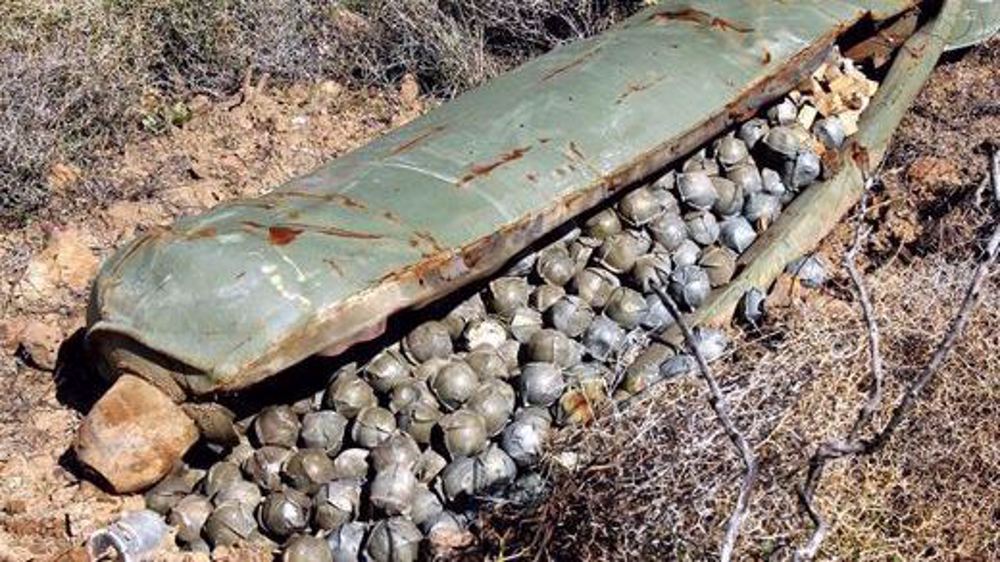
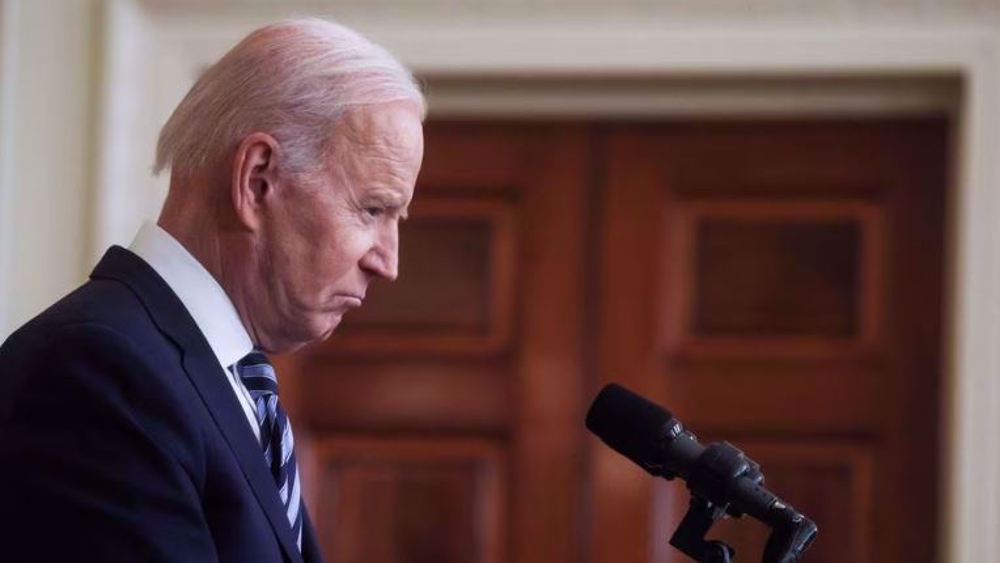
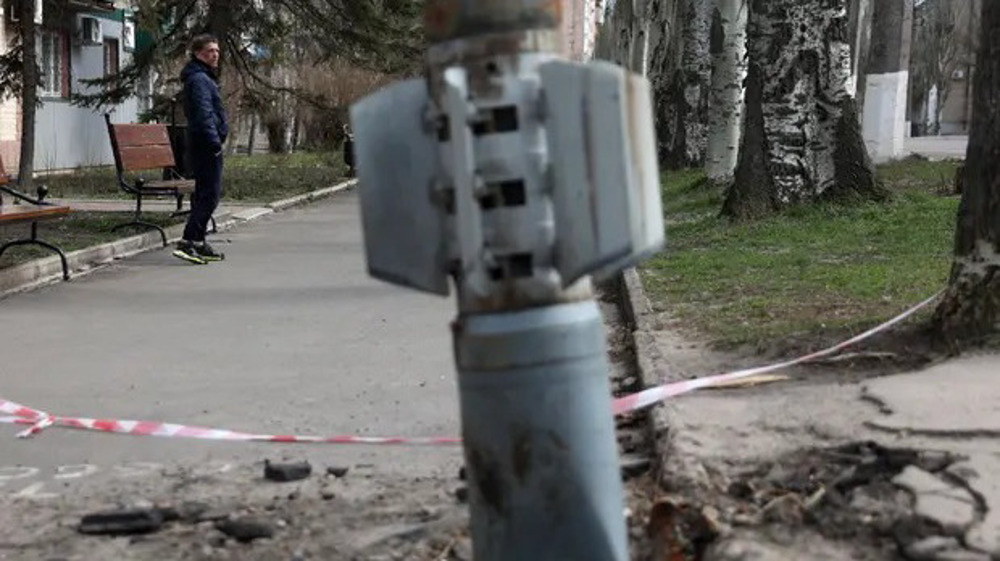






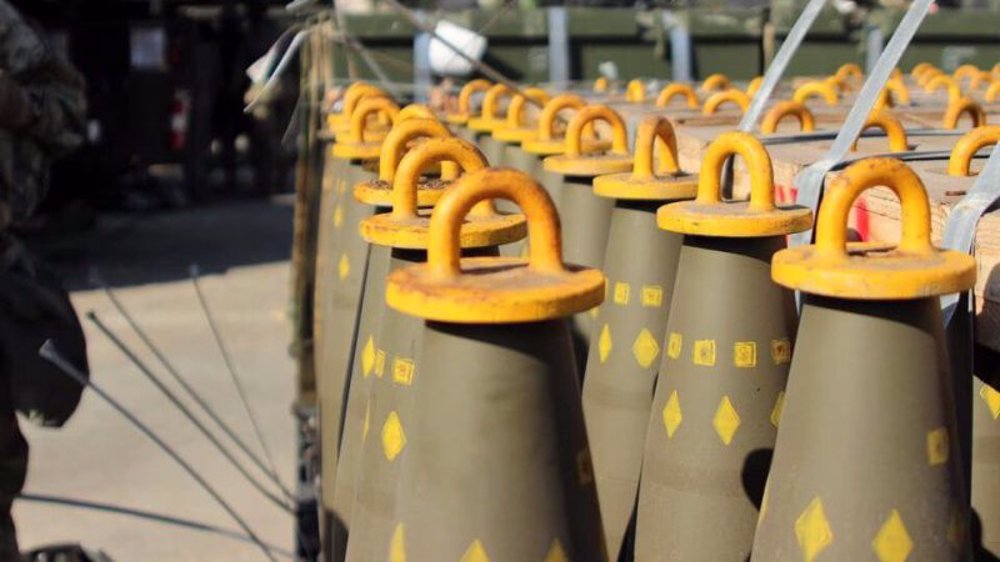
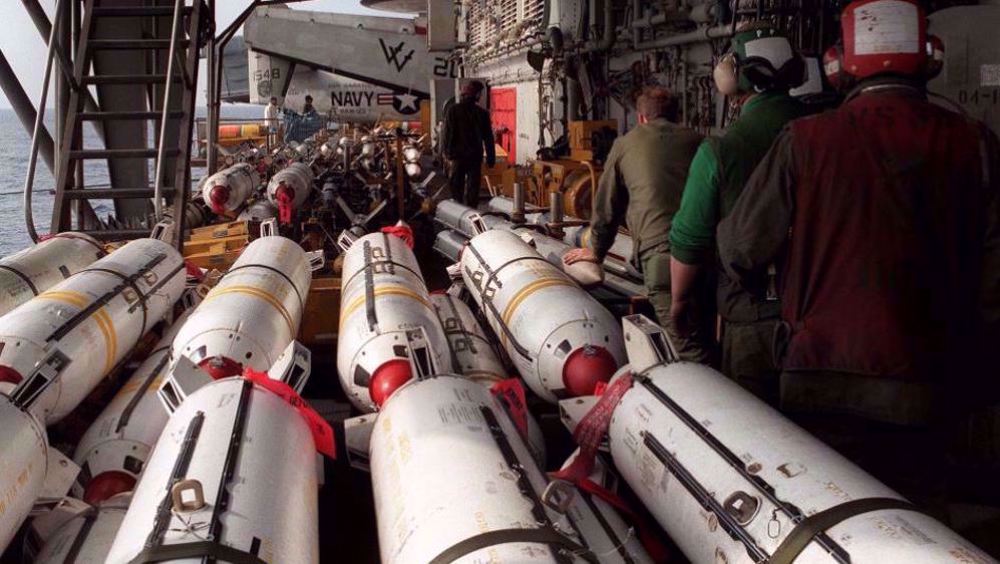

 This makes it easy to access the Press TV website
This makes it easy to access the Press TV website